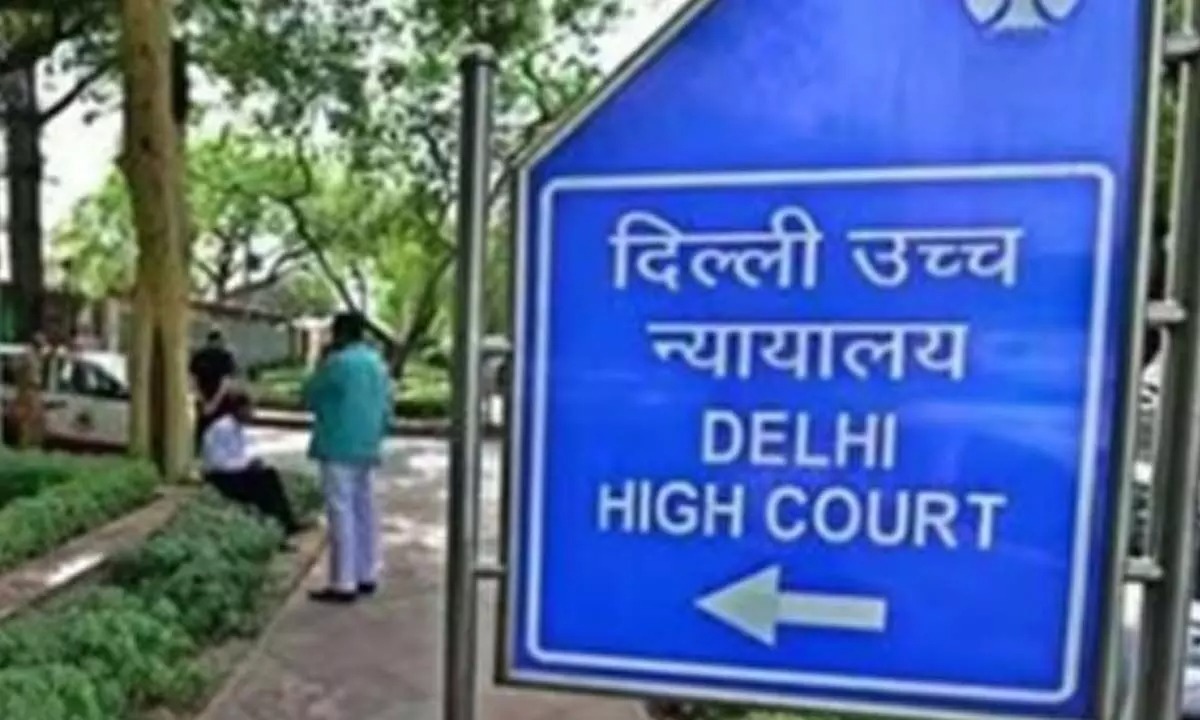@JUDGMENTTAG-ORDER
Sheema AM Khan, J.@mdashThe petitioner seeks to quash the order passed by the Permanent Lok Adalat, Patna dated 9.9.2008 on the ground that it has been filed on the basis of a forged and false affidavit purportedly signed by the husband of the writ petitioner. The then Patna Improvement Trust had allocated House No. L-2/19 in the name of late Ramdeo Prasad Singh, the father-in-law of the writ petitioner on 26.3.1962. After his death the house was transferred in the name of late Sachidanand Singh, husband of the writ petitioner by the then Patna Regional Development Authority (now the Patna Municipal Corporation). The said transfer was made through an agreement dated 4.3.1996. Respondent No. 3, Renu Jha was allowed to live in the said house by late Sachidanand Singh. Late Sachidanand Singh fell sick and was being treated for his illness at Mahavir Cancer Sansthan. Ultimately he died due to Cancer on 8.10.2008 leaving behind his wife and three sons. It is the case of the opposite party that during his life time, apparently late Sachidanand Singh had applied for permission to sell his property i.e. the flat in dispute to Renu Jha, respondent No. 3 and the said permission is said to have been granted on 30.10.2001 by the Patna Regional Development Authority. The petitioner contends that the said letter of permission bearing the signature of her husband is a forged signature, prepared by respondent No. 3 in order to surreptitiously grab the property i.e. the flat by paying a pittance in lieu of the said transfer.
2. The cause of action arose when respondent No. 3 moved an application before the Permanent Lok Adalat in which it has been pleaded that she lives with her husband in Flat No. L-2/19. It is her case that being satisfied by her husband''s contribution in performing Puja and doing all other religious and social functions, Late Sachidanand Singh had transferred the property for a token amount to her. Now that late Sachidanand Singh has died she fears that there may be some dispute raised by his wife and sons regarding the said transfer and, therefore, has made a prayer that the Lok Adalat may issue notices to the parties and settle the matter in order to avoid further litigation. It has also been pleaded that on various dates as per the direction of late Sachidanand Singh, she has paid a sum of Rs. 5,75,000/- to the eldest son of late Sachidanand Singh namely Jitendra Singh in front of her husband and other witnesses.
3. A counter affidavit has been filed in which it has been stated that the writ application is not maintainable in view of the fact that late Sachidanand Singh had appeared in person before the Permanent Lok Adalat and had filed an affidavit sworn by him accepting the fact that he had decided to transfer the house in question to Renu Jha on a token amount in lieu of the services rendered by her husband, who used to look after the religious and spiritual rights and functions of late Sachidanand Singh. It is said that the land was given by way of ''Brahman Dakchhina''. It is accepted by Renu Jha that late Sachidanand Singh was suffering from Cancer and was undergoing treatment at Mahavir Cancer Sansthan, despite which, he was able to appear before the Lok Adalat on the date so fixed.
4. This Court while hearing this matter called for the original records in this case. At the outset it may be clarified that the Permanent Lok Adalat has not been constituted u/s 22 of the Lok Adalat Act. However, in each judicial district, there is Lok Adalat which runs like a permanent Court. Therefore, there should not be any confusion on this aspect of the matter.
5. On going through the record, this Court finds there is a notarized affidavit by late Sachidanand Singh in which he has purportedly accepted that he had sold House No. L-2/19 situated in Mohalla-Krishnapuri which measures 1078 sq. ft. and has a house built on the aforesaid area. Alongwith the house he has accepted that he has transferred 413 sq. ft. of open land to Renu Jha. The affidavit indicates that his elder son has already received Rs. 5,75,000/- as consideration amount for the said transfer of land.
6. Learned counsel for the petitioner has pointed out that the so-called permission to transfer the land which was obtained by respondent No. 3 is based on a forged signature of late Sachidanand Singh. It is specifically pleaded that no such document was ever signed by him. One of the grounds for pleading that the signature of late Sachidanand Singh has been forged is the letter for grant of permission, has been signed in Hindi. The petitioner has stated that late Sachidanand Singh always signed important documents in English and as such the signature is patently forged by respondent No. 3, who is interested in getting the house transferred in her name. It is argued that late Sachidanand Singh was progressively getting weak due to his illness and it cannot be believed that he could appear before the Notary Public on 2.7.2008 to swear the affidavit, besides which the signature on the said affidavit does not belong to late Sachidanand Singh.
7. One of the arguments raised on behalf of the respondent-Renu Jha is that this Court should remand the matter back to the Lok Adalat to decide the question as to whether fraud had been practiced in order to obtain an order of the Lok Adalat as this is the main issue raised on behalf of the petitioner. Undoubtedly this Court has the power to remand the matter back to the Lok Adalat while exercising its writ jurisdiction. There are two cases referred to which purportedly support this view. In the case of
20. Cognizance of cases by Lok Adalats.--(1) Where in any case referred to in clause (i) of sub-section (5) of Section 19--
(i) (a) the parties thereof agree; or (b) one of the parties thereof makes an application to the court, for referring the case to the Lok Adalat for settlement and if such court is prima facie satisfied that there are chances of such settlement; or
(ii) the court is satisfied that the matter is an appropriate one to be taken cognizance of by the Lok Adalat, the court shall refer the case to the Lok Adalat:
Provided that no case shall be referred to the Lok Adalat under sub-clause (b) of clause (i) or clause (ii) by such court except after giving a reasonable opportunity of being heard to the parties.
(2) Notwithstanding anything contained in any other law for the time being in force, the Authority or Committee organising the Lok Adalat under sub-section (1) of Section 19 may, on receipt of an application from anyone of the parties to any matter referred to in clause (ii) of sub-section (5) of Section 19 that such matter needs to be determined by a Lok Adalat, refer such matter to the Lok Adalat, for determination:
Provided that no matter shall be referred to the Lok Adalat except after giving a reasonable opportunity of being heard to the other party.
8. On analyzing the aforesaid sections the Allahabad High Court rightly held that the Court dealing with the case can refer a dispute for settlement to the Lok Adalat, either where the parties agree for such reference or where the Court or the authority or committee organizing Lok Adalat, on application of any of the parties, refers the dispute to the Lok Adalat which will hear the matter after affording reasonable opportunity of hearing to the parties. In the present case, it is obvious that the matter was not referred by any Court to the Lok Adalat. Here I may add my own comment which is that the parties may approach the Permanent Lok Adalat for settlement through conciliation suo motu provided the Lok Adalat hearing the matter ensures that all the parties are heard in the matter before passing an award. It would be pertinent to mention that in the present case there has been a diversion in the procedure. Renu Jha approached the Lok Adalat on the basis of an affidavit filed by late Sachidanand Singh, the Court issued notice to the sons as well. However, the order sheet does not indicate that the notice was validly served to the sons or at least respondent No. 4 who had supposedly received the payments of the house.
9. Learned counsel for the petitioner has also referred to the case of
No judgment of a court, no order of a Minister can be allowed to stand if it has been obtained by fraud, for, fraud unravels everything.
10. The argument on behalf of the respondents that the matter should be remanded for consideration of the Lok Adalat for considering the question of fraud, cannot be the proper procedure as the Lok Adalat has no adjudicatory or judicial function. Its role is to persuade and guide the parties to reach a compromise or settlement. It cannot impose its own views on the parties as it would destroy the very essence of constituting such alternative remedies for settlement of dispute. The question as to whether the Lok Adalat can review its own order or whether the appeal is maintainable against the review has already been settled by the decisions aforesaid. There is no scope for doubt that although the provisions of the Act are intended to make the award of the Lok Adalat arrived on the basis of compromise or settlement between the parties to the dispute as final, the Lok Adalat being a special Tribunal may recall or remedy the order/award passed by it on the ground of fraud or misrepresentation or mistake of fact.
11. In view of judgment in Shashi Pratik (supra), this Court can remand the matter back to decide the issue of fraud/ forgery of a document to the Lok Adalat. However, in a case where the wife of late Sachidanand Singh has approached this Court and alleged that her husband had not entered into any agreement with the petitioner, it would not be proper for this Court to remand the matter. This aspect can only be decided in a proper preceding. However, it would always be open to the parties to enter into an agreement and jointly approach the Lok Adalat to rehear the matter and pass an award recording the compromise/agreement between all parties in this matter. In the result, the order impugned dated 9.9.2008, passed by the Permanent Lok Adalat, Patna is set aside. This writ petition is allowed.

